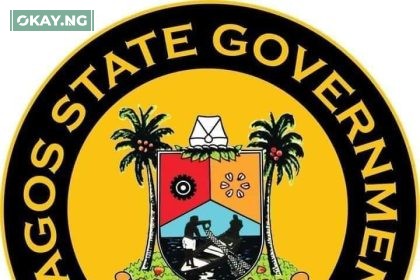The federal government has asked the Economic and Financial Crimes Commission (EFCC), Department of State Services (DSS), Independent Corrupt Practices Commission, (ICPC), the Code of Conduct Bureau (CCB), as well as civil society and non-governmental organisations to help monitor contractors engaged in the National Home Grown School Feeding Programme, NHGSFP, expected to started across the country beginning with Abuja, this Thursday. This came even as it said it had set up what it called “Field personnel and monitoring teams” to move to all areas affected by the exercise to monitor compliance to its guidelines by people it engaged for the programme. The government explained that the programme expected to benefit a total of 3.1 million households in the country will see the affected beneficiaries receive uncooked food items that have been assessed and approved by nutrition experts as adequate for the benefiting children. The Ministry of Humanitarian Affairs, Disaster Management and Social Development, in a release Tuesday morning, also disclosed that over 6,000 schools will serve as distribution centres for clusters of communities except in some states with unique security and safety issues where other structures will be used. It particularly said parents or caregivers of beneficiaries will collect what it called “Take-Home Rations” on behalf of the 3,131,971 households to be impacted by the intervention programme. It explained that following the technical partnership it had with the World Food Programme, “a joint document on ‘Safe Distributions during COVID-19’ has been developed and will be shared with the state governments before implementation. “Because safety remains a collective responsibility, the ministry has also incorporated rapid sensitisation into all phases of this model, so that people are equipped with the knowledge they need to stay safe and maintain social distancing while accessing and delivering this service,” it said. According to the ministry, “Each household will receive a Take-Home Ration valued at N4,200 and made up of 5 kg Bag of Rice, 5 kg Bag of Beans, 500 ml Vegetable Oil, 750 ml Palm Oil, 500 mg Salt, 15 pcs of eggs, 140gm tomato paste.” “These rations have been reviewed by nutrition experts to ascertain the nutritional value and benefit to the children,” it said, adding that; “The Ministry is also deploying resources to provide oversight for these processes to ensure equity and accountability. “Field personnel and monitoring teams have been set up and are ready to move. As an extra layer of monitoring, the ministry has requested other agencies of government including the DSS, EFCC, ICPC, Code of Conduct Bureau and a host of NGOs and CSOs to help monitor,” it said, disclosing that: “The Ministry’s hotlines will be made available to the public to provide accurate information and for grievance redress.” It said, “While the intervention is primarily for school children currently enrolled on the programme, the ministry has also been engaging partners and other agencies to explore options for those children who are not current beneficiaries.” The release read in full: “The Federal Ministry of Humanitarian Affairs, Disaster Management and Social Development will commence the Home-Grown School Feeding Programme on Thursday, May 14, 2020, in Abuja and subsequently in Lagos and Ogun states before the other states of the federation. “Although school children are at home with schools shut as a result of the pandemic, President Muhammadu Buhari via a March 29th, 2020 pronouncement directed the Honourable Minister of Humanitarian Affairs, Disaster Management and Social Development to liaise with state governments to develop strategies on the continuation of the school feeding programme. “The Ministry in consultation and collaboration with state governments identified the distribution of Take-Home Rations (THR) to the households of the children on the programme as a feasible method of achieving this directive after exploring several options. “This is a globally accepted means of supporting children to continue to have access to nutrient-rich foods despite disruptions to the traditional channels of school feeding. “The ministry has requested states to carry out mapping exercises in order to trace the households of the children using all available data sources including the school-based management boards, community focal persons, cooks on the programme and most importantly existing school registers in the LGAs where the schools are domiciled, which is the primary source of data of beneficiaries used by the National Home Grown School Feeding Programme. “As a second level of verification, the door to door voucher distribution process will be used. “The provision of Take-Home Rations will, therefore, be carried out based on data provided and structures put in place by the HGSFP over the years, with the Federal Government providing funds to the states for implementation. “Following requests from Kwara and Bayelsa states where the programme was not fully operational before the lockdown, the two states will be able to benefit from the modified programme once certain requirements are fulfilled. “The target beneficiaries are defined as children in primary 1 to 3 in public schools participating in the programme. A total of 3,131,971 households are targeted for this intervention. “Employing vouchers which are QR coded, serialized as well as the date and time-stamped, identified households will be able to access Take-Home Rations from distribution centres. “Each household will receive uncooked food items that have been assessed and approved by nutrition experts as adequate for the children. “Over 6,000 schools will serve as distribution centres for clusters of communities except in some states with unique security and safety issues where other structures will be used. “The Ministry is receiving Technical Support from the World Food Programme (WFP). “Following on the technical partnership with the WFP, a joint document on “Safe Distributions during COVID” has been developed and will be shared with the state governments before implementation. “Because safety remains a collective responsibility, the ministry has also incorporated rapid sensitization into all phases of this model, so that people are equipped with the knowledge they need to stay safe and maintain social distancing while accessing and delivering this service. “Each household will receive a Take-Home Ration valued at N4,200 and made up of 5 kg Bag of Rice, 5 kg Bag of Beans, 500 ml Vegetable Oil, 750 ml Palm Oil, 500 mg Salt, 15 pcs of eggs, 140gm Tomato Paste. These rations have been reviewed by nutrition experts to ascertain the nutritional value and benefit to the children. “The Ministry is also deploying resources to provide oversight for these processes to ensure equity and accountability. Field personnel and monitoring teams have been set up and are ready to move. “As an extra layer of monitoring the Ministry has requested other agencies of government including the DSS, EFCC, ICPC, Code of Conduct Bureau and a host of NGOs and CSOs to help monitor. “The Ministry’s hotlines will be made available to the public to provide accurate information and for grievance redress. “While the intervention is primarily for school children currently enrolled on the programme, the Ministry has also been engaging partners and other agencies to explore options for those children who are not current beneficiaries. “Going forward, there is a need to critically examine and review data management strategies so that when faced with emergencies such as this, there will be easy access to rich, readily available and accurate data of all persons of concern for swift implementation of critical interventions. The Ministry is working diligently to actualize this in the shortest time possible. “The ministry solicits the support of state governments in deploying security agents to ensure the safety of beneficiaries, sensitize the communities and programme personnel on the need to ensure that this intervention reaches the intended beneficiaries and facilitate the timely delivery of quality food supplies provided by the state aggregators. “In addition, the Ministry invites well-meaning Nigerians to continue to donate to the poor and support those in need because the resources available to government are limited but together we have a better chance of overcoming this challenge.”agraph –>
“In addition, the Ministry invites well-meaning Nigerians to continue to donate to the poor and support those in need because the resources available to government are limited but together we have a better chance of overcoming this challenge.”










